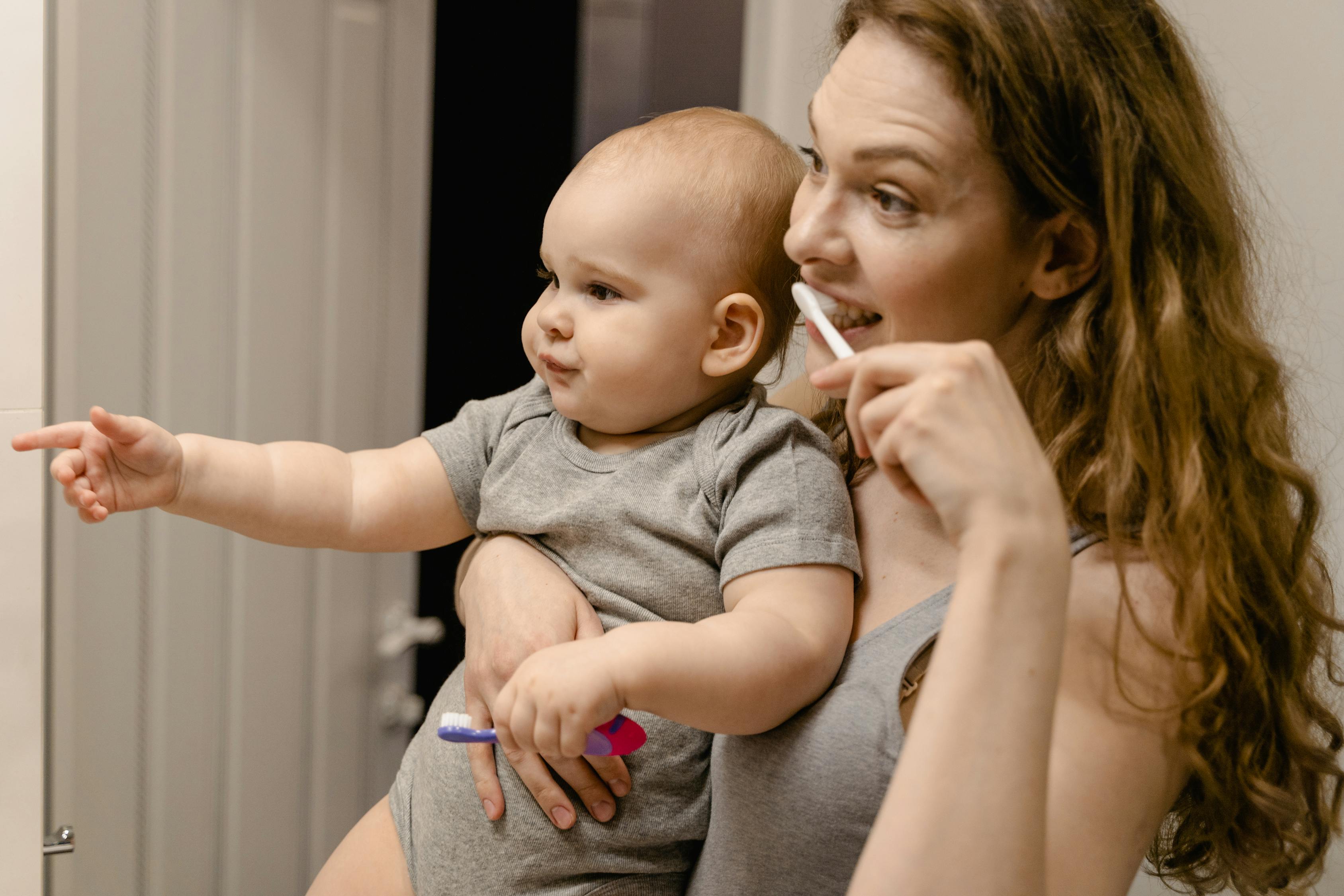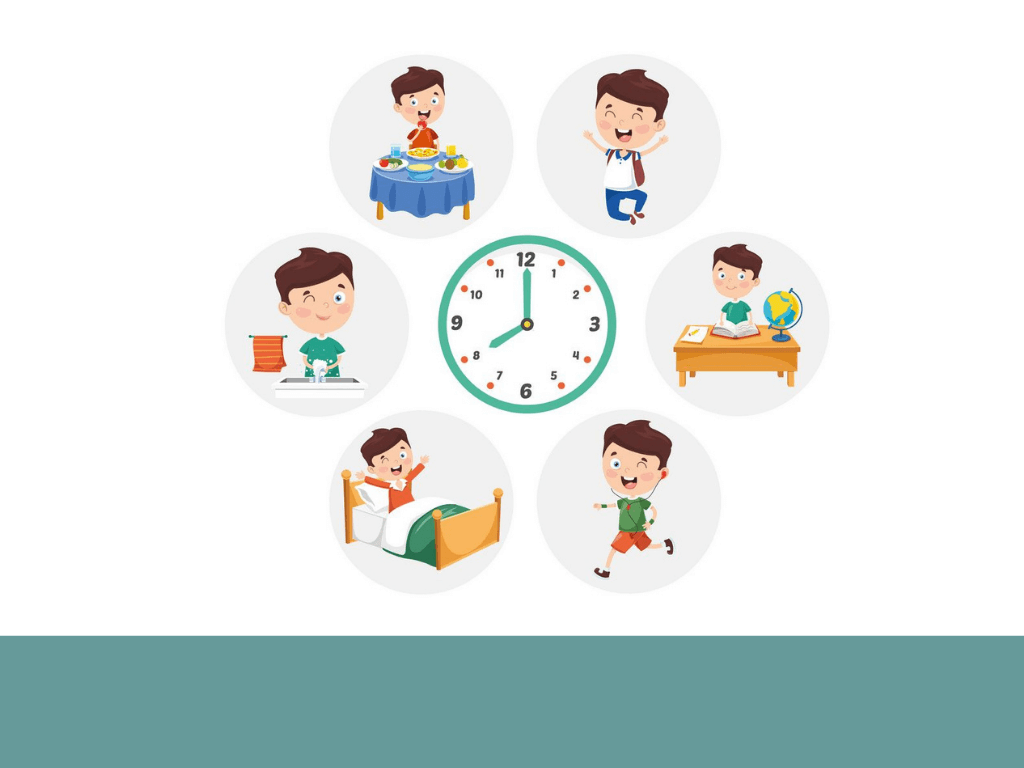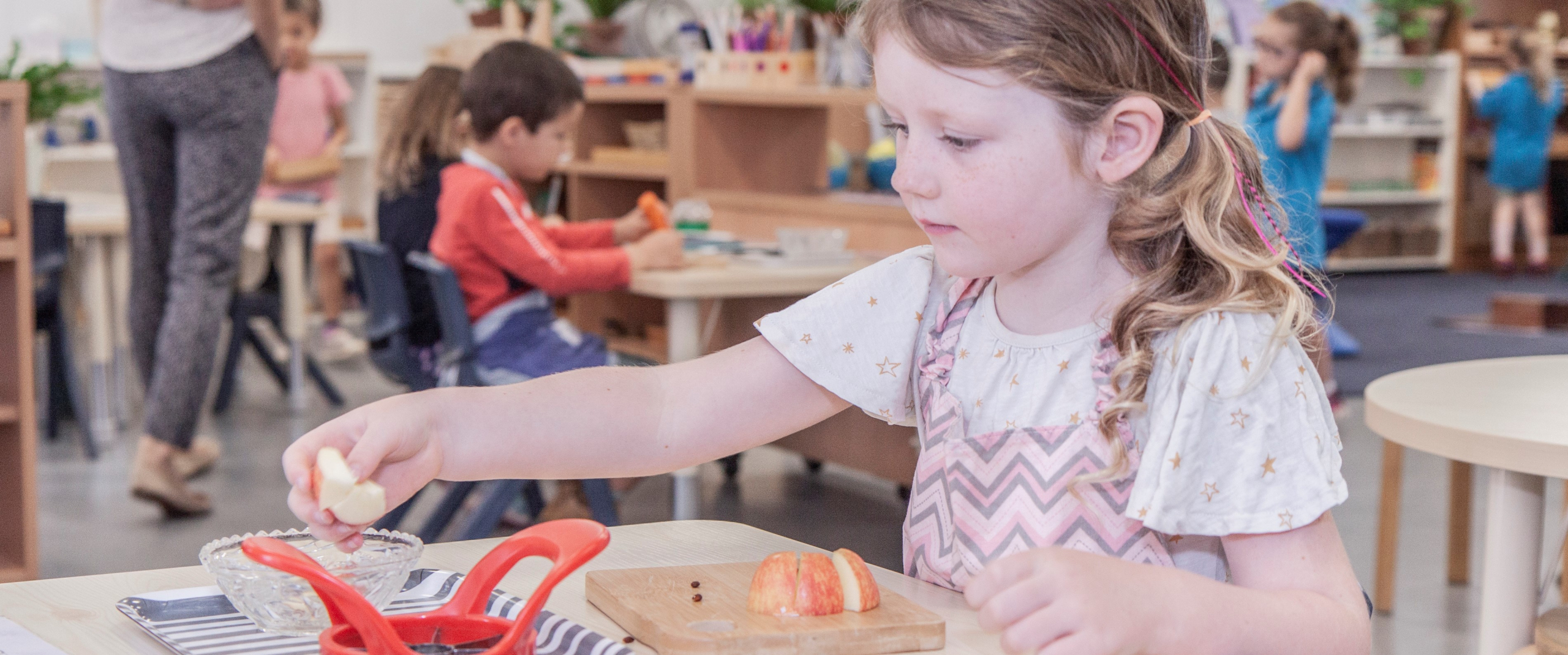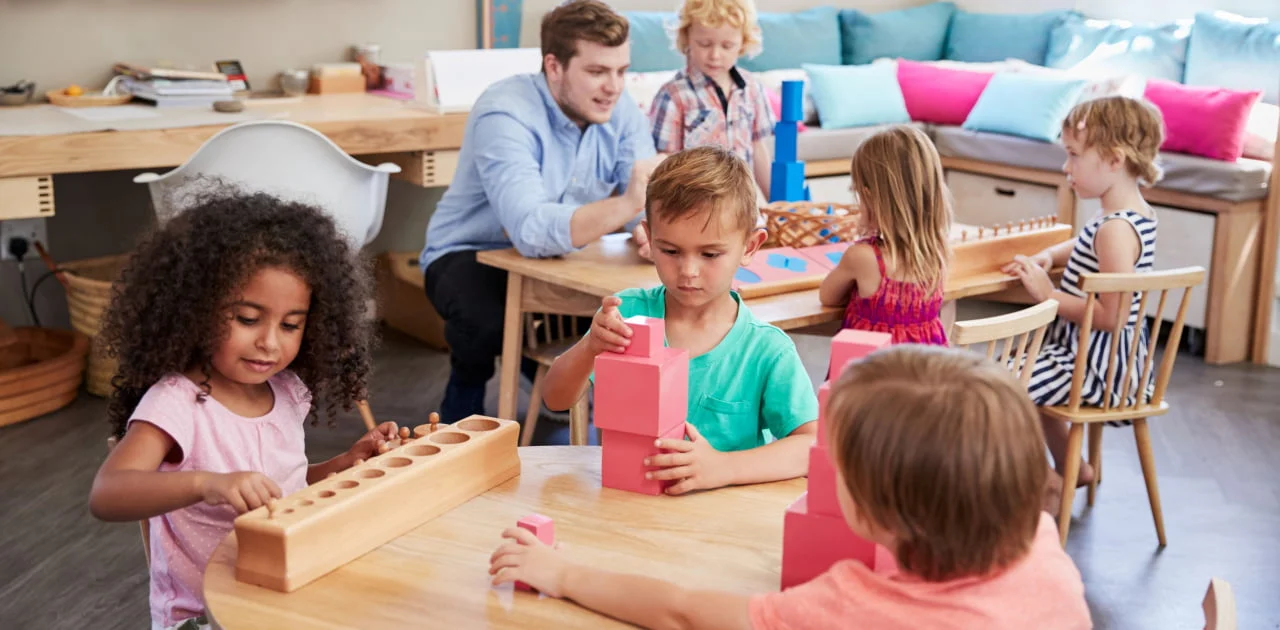Making routines for children can be quite beneficial.
Routines help children understand their world. For young children, so much of the world is new to them. They are looking for some sense of order in the chaos. Without a routine, a child will be reliant on adults to know what to expect next. A routine teaches a child what to expect, and it allows them to enjoy their independence while also building confidence in their ability to navigate the world. More benefits of routines for children are listed below.
#1 Routines appeal to a child’s sense of order:

We all know that children have sensitive periods of order. This indicates that your child is attempting to organize and categorize their experiences. A clear, consistent, and orderly children routine will not only appeal to your child but will also help them thrive.
#2 Routines aid in predicting what will happen next:
As your child attempts to organize the world around them, they will notice patterns and sequences. When they can find this in a routine, it will help them predict and act on what happens next. The ability to act and do things for oneself builds tremendous confidence.
#3 Routines assist in not forgetting things:
Routines can also assist us in remembering to do things that we might otherwise forget. For example, there could be many things to do before going to bed. With a routine, things become habitual, and you don’t have to think about what needs to be done.
#4Â Routines help to lay the groundwork for logic and math:
The ability to follow a sequence is essential for both logic and math. You lay the groundwork for a joyful attitude toward math, order, and precision by having clean routines logical sequence.
Some examples for daily routine for children:
Bedtime:
This is how you would get ready for bed every day. A consistent bedtime routine can make your life and your child’s life so much easier.
Going out:
These are things you should do every time you go out. This is an important routine to establish when learning to use the toilet.
Bathroom:
This routine teaches children how to use the restroom in a sanitary manner. Having a routine for cleaning up accidents is also very beneficial.
Dinner:
This would be a family tradition in which everyone could take part. It would include both setup and cleanup. Your dinner routine is an excellent place to begin involving your child in household chores.
How to plan children routine?
Some routines will develop on their own. A routine could be as simple as your child turning off the lights before going to bed. You may notice that if they are unable to turn off the light, they become upset because their routine has been disrupted.

You can use smaller routines to construct larger routines. If your child likes to turn off the light, have them brush their teeth before turning off the light in the bathroom, then go put on their pajamas and turn off the bedroom light. When you notice your child has developed a routine, try to stick to it for as long as your child wants because creating a sense of order is critical for children under the age of six.
How to implement children routine?
Most people give up at this point because it is the most difficult. It takes time, engagement, and consistency to establish a routine. It will take longer to establish a routine with a younger child. Putting in the extra effort at the start will save you a lot of time later on. Here are some ideas for getting the routine started.
Allow extra time for everything at first –
Your child will need to look to you for guidance as they learn the routine. You will need more time to show them before they can try. Your child will need several attempts to complete a new task, especially if it is completely new to them.
Follow a logical sequence –Â

They are more likely to think A and after that B, rather than looking at the time. Consider the sequence so that you are not changing it, and then let your child follow the routine rather than focusing on the time. For example, begin a bedtime routine at 7 p.m. (rather than attempting to be in bed at 8 p.m.), and your child will go to bed once the sequence is completed. Depending on the day, the bedtime routine could end at 8:00, 8:15, or even 7:45.
Talk about it –Â
Talking about it with your children will help them understand and adjust to the new routine. It will also likely increase their vocabulary as they converse with you about what you are doing. When you have a younger child, narrating what you do is quite helpful. When you have older children, you can have many conversations.
Maintain consistency –
Children need consistency as they try to find order in their world. Maintain consistency in the sequence and circumstances under which you perform the routine. If you have a routine for going out and only follow it on occasion, it will take your child a long time, if at all, to independently follow the routine.
How to maintain children routine?
These routines should serve as a stepping stone toward independence. Once you set the routine, your child will most likely initiate the routine.

When there is a consistent routine, special days can be taken by altering the routine. You can, for example, skip a routine on a special occasion or make a routine extra special by adding something. As your child grows, they may change their routine on their own or outgrow certain routines. Allow your child to maintain their independence by managing their routine.
In a Nutshell:
Making your children follow a daily routine will develop good habits in your child. Following the points mentioned in the blogs will be quite helpful. When it comes to following their daily routine Make sure that you do not force your kids. One of the best decisions is to select a good Montessori school. In Montessori schools, teachers help children to become independent.






